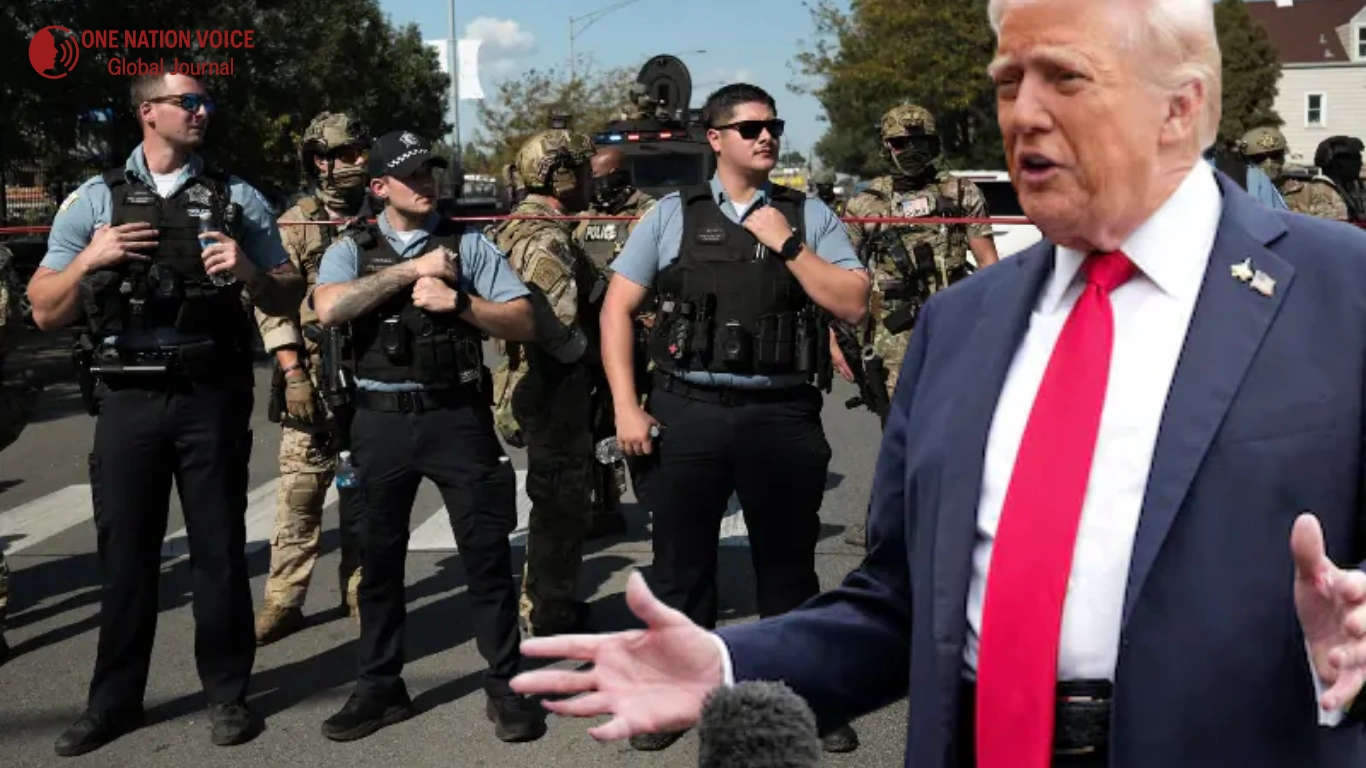Trump authorises troops to Chicago as judge blocks Portland deployment

Trump authorises troops to Chicago as judge blocks Portland deployment
It’s been a wild few days politically. President Trump has authorized sending National Guard troops into Chicago, just as a federal judge put a stop to his plan to do the same thing in Portland. It’s one of those moments that captures how divided the country is and it is not just politically, but over who actually gets to decide how force is used inside US cities.
In Chicago, the White House says the move is about restoring order and protecting federal property after what it calls a rise in violent unrest. About 300 Illinois National Guard members are being federalized and sent in. Local leaders, though, are furious. Governor J.B. Pritzker called it a “political stunt” and said the state didn’t ask for help. Mayor Brandon Johnson said the presence of troops could make things worse, not better. There’s also a lot of tension around a recent Border Patrol incident where a woman was shot near a protest. So, the timing couldn’t be more charged.
Portland’s situation went the opposite way. A federal judge there, Karin Immergut and ironically appointed by Trump, issued a temporary order blocking his plan to deploy troops. She said the administration hadn’t shown enough reason to justify military involvement and that it could step on state authority. Her decision leaned heavily on the idea that local policing power belongs to states, not the federal government, unless something extraordinary is going on. It’s basically a reminder that the US doesn’t do martial law, at least not without a fight in court first.
Also Read: Trump’s $100,000 fee for H-1B worker visas challenged in lawsuit
The legal fight here revolves around a few big ideas. The first is the Posse Comitatus Act, which keeps the military out of domestic law enforcement. Using the Guard in this kind of situation has always been a gray area, but doing it without a state’s consent pushes that boundary even further. Then there’s the Tenth Amendment question. So, how far the president can go when a governor says no. Oregon and California are already joining forces to block what they see as overreach.
Beyond the legal side, the politics of it are messy. Some people see Trump’s moves as strong leadership in cities they think are “out of control.” Others see it as intimidation, pure and simple. The split between what’s happening in Chicago versus Portland highlights how uneven this can get depending on which state you’re in and who’s in charge locally.
The bigger picture is about precedent. Once you start normalizing troops on city streets for crowd control, where does that stop? Civil rights advocates are warning that blurring the line between police and military could change how the U.S. handles protest and dissent for good.
Right now, Portland’s block runs until mid-October, when the courts will dig deeper into the case. Chicago’s deployment is still on track, at least for now. Whether this ends up being remembered as a one-off political move or the start of a larger shift in how the federal government uses force at home will depend on what happens next and how the public reacts.
The views and opinions expressed in this article are exclusively those of the author and do not reflect the official stance, policies, or perspectives of the Platform.












